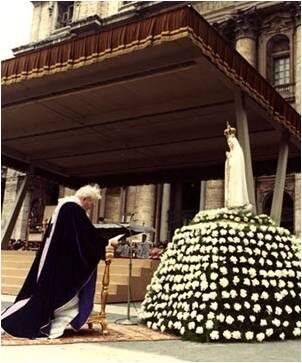Someone posted this to a Facebook group:
If the passages on there being only one mediator (Christ) are heavily applied to all of the canonized saints (CC and EO) to mean that none of them can pray for us, then what is the sense of any of us praying for each other at all? The moment we pray for some one [sic.], does that make us “mediators” and thus usurp the position of Christ as anti-Catholics claim that the prayers of the saints do? (Sorry for the term “anti-Catholics” it’s all I can come up with in this context and is the best blanket term I can find for this teaching. If there is a better term, then please inform me of it and I will use it.)
Sadly, this is what happens when someone is taught that the Bible is not for them to read and understand but is for the clergy. Thus, if the clergy says it, it must be true.
You will note that this person spoke generically with no quotations or citations to or from the Bible. They write, “If the passages on there being only one mediator (Christ)” but which would those be? Well, whichever one they are (see below), if they “are heavily applied to all of the canonized saints”—with a reference to the CC: Catholic Church and EO: Eastern Orthodox—“to mean that none of them can pray for us, then what is the sense of any of us praying for each other at all?”
Firstly, one huge difference between CC and EO “saints” and biblical “saints” is that CC and EO “saints” are special, unique and few people who have met particular and manmade criteria for sainthood, etc. such as having performed verified miracles. Biblically, each and every Christian is a saints (see my article Roman Catholicism : On Saints for the quotations and citations).

Secondly, another huge difference between CC and EO “saints” and biblical “saints” is that CC and EO saints are all dead and this plays a big role in the next statement which is that “The moment we pray for some one, does that make us ‘mediators’ and thus usurp the position of Christ as anti-Catholics claim that the prayers of the saints do?”
We living saints can ask each other to pray for one another in this realm, in the here and now. However, how do CC and EO dead saints know to pray for us? Well, they either have some form of omniscience and know to do it or they are asked by us. However, once we ask the dead for anything we are committing a form of necromancy which the Bible condemns (see Roman Catholic Doctrine of Purgatory, part 6—Indulgences and Necromancy for details).
Thirdly, there is a difference between the Bible’s reference to intercession and to mediation; being an intercessor and being a mediator. We living saints are mediators so that we can “pray for some one” which absolutely does “make us ‘mediators’” but does not “usurp the position of Christ.” This is because Jesus is the one and only intercessor (see Roman Catholic Maryology: Mary in Roman Catholicism, part 15 – Intercessor? Mediator? Advocate? and Trinity : Who is the Mediator / Intercessor / Advocate).
Forthly, the claim that “anti-Catholics claim that the prayers of the saints” “usurp the position of Christ” is confused and meaningless. The issues of who is a saint, the difference between the living and the dead and the difference between intercession and mediation make the whole statement fall apart.
Finally, as for “anti-Catholics” being what they came “up with in this context and is the best blanket term I can find for this teaching” the term “pro-Bible” is a better one.
